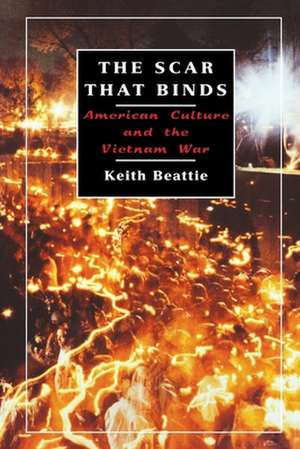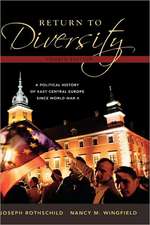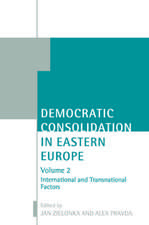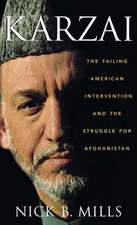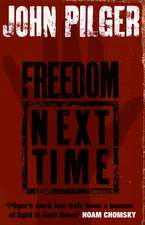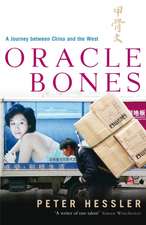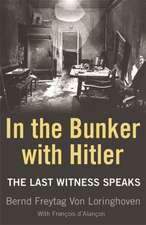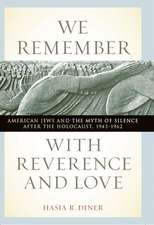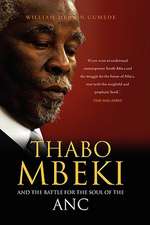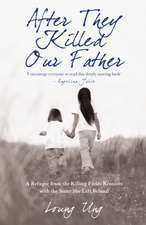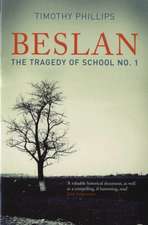The Scar That Binds – American Culture and the Vietnam War
Autor Keith Beattieen Limba Engleză Paperback – 30 iun 2000
| Toate formatele și edițiile | Preț | Express |
|---|---|---|
| Paperback (1) | 224.55 lei 6-8 săpt. | |
| MI – New York University – 30 iun 2000 | 224.55 lei 6-8 săpt. | |
| Hardback (1) | 524.54 lei 6-8 săpt. | |
| Wiley – 30 apr 1998 | 524.54 lei 6-8 săpt. |
Preț: 224.55 lei
Nou
Puncte Express: 337
Preț estimativ în valută:
42.97€ • 44.40$ • 35.74£
42.97€ • 44.40$ • 35.74£
Carte tipărită la comandă
Livrare economică 20 martie-03 aprilie
Preluare comenzi: 021 569.72.76
Specificații
ISBN-13: 9780814798690
ISBN-10: 0814798691
Pagini: 240
Dimensiuni: 196 x 228 x 19 mm
Greutate: 0.34 kg
Ediția:Revised
Editura: MI – New York University
ISBN-10: 0814798691
Pagini: 240
Dimensiuni: 196 x 228 x 19 mm
Greutate: 0.34 kg
Ediția:Revised
Editura: MI – New York University
Recenzii
"Bold. . . . The greatest pleasure the book offers is the often thought-provoking close reading of both familiar and long-forgotten movies and fiction of the Vietnam War era."
--The Journal of American History "Beattie shows us how ideological strategies operate and, thereby, prepares us to outflank them in the future. The importance of his contribution to the study ofAmerican culture can hardly be overstated."
--Contemporary Sociology ". . . brilliantly shows how the war lost abroad was subsequently won at home."
--American Quarterly
"Bold... The greatest pleasure the book offers is the often thought-provoking close reading of both familiar and long-forgotten movies and fiction of the Vietnam War era." --The Journal of American History "Beattie shows us how ideological strategies operate and, thereby, prepares us to outflank them in the future. The importance of his contribution to the study ofAmerican culture can hardly be overstated." --Contemporary Sociology "... brilliantly shows how the war lost abroad was subsequently won at home." --American Quarterly
--The Journal of American History "Beattie shows us how ideological strategies operate and, thereby, prepares us to outflank them in the future. The importance of his contribution to the study ofAmerican culture can hardly be overstated."
--Contemporary Sociology ". . . brilliantly shows how the war lost abroad was subsequently won at home."
--American Quarterly
"Bold... The greatest pleasure the book offers is the often thought-provoking close reading of both familiar and long-forgotten movies and fiction of the Vietnam War era." --The Journal of American History "Beattie shows us how ideological strategies operate and, thereby, prepares us to outflank them in the future. The importance of his contribution to the study ofAmerican culture can hardly be overstated." --Contemporary Sociology "... brilliantly shows how the war lost abroad was subsequently won at home." --American Quarterly
Notă biografică
Textul de pe ultima copertă
In The Scar That Binds, Keith Beattie examines the central metaphors of the Vietnam War and their manifestations in American culture and life. Blending history and cultural criticism in a lucid style, this provocative book discusses an ideology of unity that has emerged through widespread rhetorical and cultural references to the war. A critique of this ideology reveals three dominant themes structured in a range of texts: the "wound", "the voice" of the Vietnam veteran, and "home". The analysis of each theme draws on a range of sources, including film, memoir, poetry, written and oral history, journalism, and political speeches.
